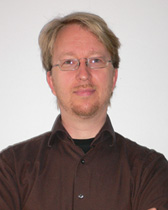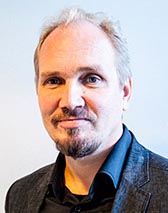CFS Workshop: Social Ontology and Social Consciousness
Program:
14:15-14:20 Introduction
14:20-15:20 Heikki Ikaheimo (The University of New South Wales): "Ethical Perfectionism in Social Ontology"
15:20-15:40 Coffee Break
15:40-16:40 Arto Laitinen (University of Tampere) : "Mutual recognition: the constitutive moral grammar of human sociality?"
16:40-17:00 Concluding remarks

Heikki Ikaheimo
"Ethical Perfectionism in Social Ontology": What is the relationship of the ontological foundations of the human life-form to ethical or moral goodness? I will discuss in this article two opposing conceptual approaches to this issue present in social ontology broadly construed. The first approach, represented by Max Weber and John Searle, is distinguished by the two interlocking features of, firstly, pinning down the basic concepts for dealing with the human social world in terms of definitions by necessary and sufficient conditions, and, secondly, trying to keep these foundational conceptual operations neutral with regard to ethical evaluation or normativity. As I will show, both Weber and Searle nevertheless end up in introducing ethical considerations into their conceptions, which in Weber’s case introduces an interesting internal tension and in Searle’s case an outright contradiction with the official ethical neutrality of the conceptual approach of the respective author. The second approach, represented by Hegel, is distinguished by, first, positing a normative essence for distinctively human social phenomena, and, secondly, by conceiving the normativity involved explicitly as of an ethical or moral kind. For Hegel, introducing ethical considerations into his social ontology, or his ontology of life with the human, essentially social form does not introduce the kinds of conceptual tensions or troubles found in Weber and Searle, and his strategy has also other arguable advantages which make it worthy of closer scrutiny.

Arto Laitinen
"Mutual recognition: the constitutive moral grammar of human sociality?": In this talk I examine whether the idea of mutual recognition could form the constitutive moral grammar of human sociality. After examining the concepts of “recognition”, “mutuality”, “constitutive”, “moral grammar” and “human sociality”, I examine briefly whether and how it matters if some valid normative or moral grammar is constitutive of human sociality or not. Then I briefly examine more “primitive” forms of sociality that might not count as mutual recognition, and more “complex” forms of sociality whose relevance may go beyond mutual recognition – these cases might show that mutual recognition is not that central in human sociality. I end with some suggestions concerning what might follow to ethics and social ontology if the approach stressing mutual recognition (or some related approach stressing intersubjectivity or “second-person standpoint”) is accepted.
The workshop is open to all. Welcome!
